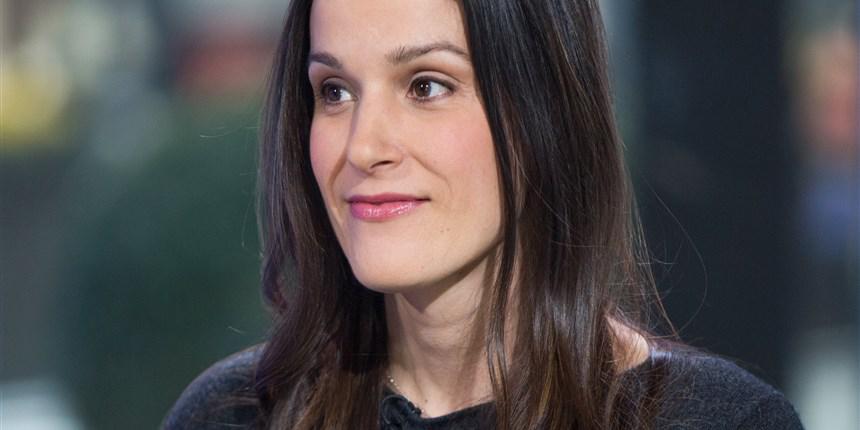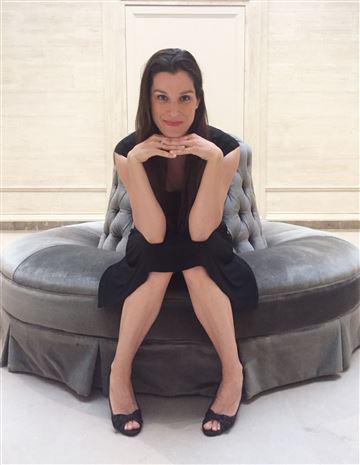|
Jennie Willoughby The story of my abuse is also the story of the millions of victims who still can't speak out
NBC News
As the smoke clears following my ex-husband Rob Porter’s resignation from the White House, a deeper narrative is developing. Even people who knew me did not know the details of my marriage. You see, society encourages us to keep some secrets hidden. But in an attempt to conquer the shame that had been plaguing me for the three years since my divorce, I chose to reveal my darkest one online. I drove to my former home and snapped a picture of a Post-It note reading: “I stayed with my abusive husband.” Then I sat in my car in the light drizzle of the evening and composed an Instagram post which, a mere eight months later, would spark a hashtag — #AndSoIStayed — and a national controversy. As the smoke clears on the initial news of my ex-husband Rob Porter’s White House dismissal, a deeper story is developing. People responded intensely to my words because this is a story that occurs all too often behind closed doors. Locked in closets and bathrooms. Trapped in cars. Isolated at school or at church or at work. Hiding under the bed. Indeed, cowering in kitchens and living rooms all across America are the unspoken stories of abuse. And speaking out about my own story has showed me just how desperate people are for a way to express what they themselves are going through. For days, pleas have poured into my DMs on Facebook, Instagram, and Twitter. Thousands are seeking answers about how to leave, how to overcome shame, or how to start over. Hundreds of comments flooded my blog post from those who are still suffering and scared. My experience has been a pathway forward for them. And I know why. After years of internal work on self-compassion, forgiveness and acceptance, I was still reluctant to tell the truth because I was afraid. In so many ways, rather than telling my family, or my clergy, or the hospital, or the police, it felt easier to tell strangers on the internet. At least there I didn’t have to see their faces as they crumpled in misunderstanding, disbelief, or pity. America, we owe each other more than this! Not everyone gets their story broadcast on national television. Not everyone gets to see poetic justice served for their abuser. Not everyone gets out alive. And while I am grateful that my words have allowed men and women a platform to share their stories, I am heartbroken that the only safe space that exists for some is an anonymous comments section. As I recalled the humiliation and denigration I suffered at the hands of my former husband, I felt ashamed. As I remembered the times I lied and pretended like everything was fine to save face, I felt embarrassed. As I considered all the little acts of aggression and terror I was subjected to, I felt disgraced. As if somehow, the dishonor was mine to own for allowing it to happen. As if somehow, I was responsible for his behavior. But that’s the thing with abuse: I did feel responsible. He had questioned my intelligence and my reality so many times that I was unsure if I really was the one who was crazy, as he claimed. As I yelled at him and got in his face to defend myself — perhaps I was the one with the anger problem. When I collapsed on the ground begging for him to stop calling me names and blaming me for his unhappiness, I actually wondered if he was right: Maybe I was worthless. Like putting your hand in a pot of water on the stove and waiting for it to boil, shame grows over time. By the time the water is scalding, you are so used to the temperature that you question whether it is dangerous. This is the point at which I found myself when I first discovered I was pregnant. He was yelling at me and complaining I was emotional and ruining his life. As I lay on the bedroom floor crying and begging him to stop, I contemplated suicide. That’s not even the right word, I designed my suicide. Because in that moment, it felt like there was nothing I wouldn’t do to make the unending insults and confusion and isolation end. Including ending my life and the life of my unborn child. That’s how abuse makes you feel. And the unseemliness of these thoughts creates a cycle of secrecy, in which victims feel too ashamed to admit their feelings and ask for help. But secrets, like shadows, die in the light. It is not the responsibility of the abused to come forward and force a shift in our cultural understanding of domestic violence. The onus is on society to shine a light on this societal problem and demand a change. We need to stop sensationalizing abuse in the media and Hollywood, because it is more nuanced than that. We need to stop avoiding discussions of abuse in schools and in the workplace, because it is more prevalent than that. We need the knowledge of abuse to lead to swift and just action, because it is as serious as that. We need to talk openly and honestly about why our culture continues to tolerate abuse. And we need to recognize that if anyone is susceptible, everyone is susceptible. Domestic abuse is not limited to the poor, or to minorities, or the uneducated, or the criminal, or the disenfranchised. Abuse is everywhere. And it’s time we opened our hearts to face this not-so-hidden American secret.
|
.
Any original material on these pages is copyright © BishopAccountability.org 2004. Reproduce freely with attribution.

